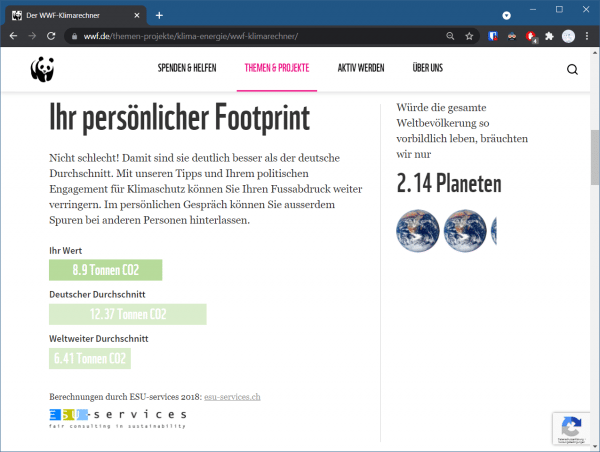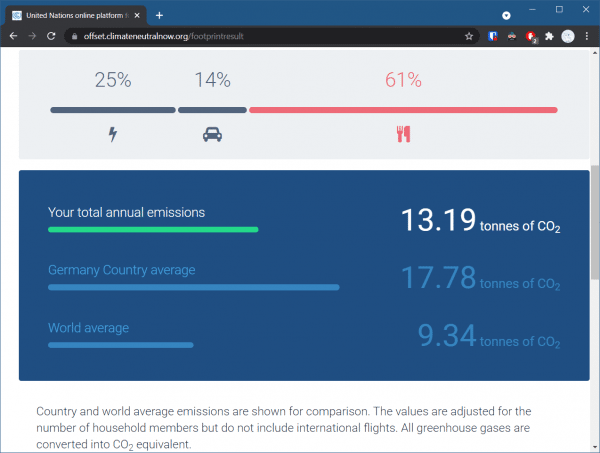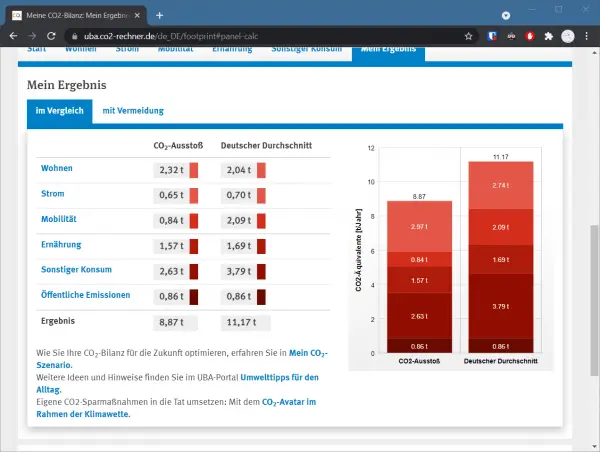Do you want to find out how big your carbon footprint is? You can do that very easily with a CO2 calculator. You can find such computers in abundance on the Internet. We introduce you to the best here.
What are carbon calculators?
A carbon calculator is a computer program that calculates your carbon footprint. This is the approximate amount of carbon dioxide generated by the activities of companies, organizations, individuals, families, etc. Every person or group can determine their carbon footprint.
It works by entering information into the computer program about how you live your life. For example, how you commute to work or school, how to heat and power your house, how to dispose of your waste, etc. This information is then reported back in the form of a carbon footprint. This is usually calculated for a period of one year.
Regardless of the measurement frame, the unit for the carbon footprint is tons (metric tons) of carbon dioxide equivalent (CO2e). Carbon dioxide is the most common greenhouse gas emitted by human activities, but the unit CO2e also takes into account all other greenhouse gases (such as methane and nitrous oxide) by relating them to carbon dioxide.
The best carbon calculators
There are a variety of carbon calculators available. Which one is right for you depends on your needs and what it is supposed to tell you: how much carbon is needed to heat your home or factory, what are the emissions of your car (or maybe your company's fleet of vehicles) or how much waste do you generate? You will definitely find the right calculator in the following selection..
WWF CO2 calculator
The WWF climate calculator is one of the most user-friendly calculators. Instead of asking you to provide precise figures for your energy consumption, annual mileage, and the like - which most of us don't have on hand - he asks you simple multiple choice questions. For example, you can specify the proportion of seasonal fruit and vegetables in your total purchases or the efficiency class of your large household appliances. With a selection of the answers, you can immediately see how this affects your footprint.
In addition, the WWF calculator is one of the most comprehensive programs. It covers the four main categories of household consumption and asks a series of questions about each. The result then shows you not only how much CO2 you consume in contrast to the German average, but also how many planets we would need for your consumption.

UN carbon calculator
The UN carbon calculator mainly asks about energy consumption in your household and your travel habits. Very few questions are asked about food and goods, services and leisure. The latter category is not taken into account in its estimates. Like some other calculators, this one compares your footprint to the average per capita for your country and the world. If you live in a country with a high per capita average, this is a helpful, if sobering, reminder of your personal climate impact.
The UN Carbon Calculator allows you to select your country of residence and then estimate your household's emissions based on the latest country-specific data. This is a welcome feature as many of the most popular carbon calculators are tailored for the US or UK and are a good alternative for residents of other countries.
At the end, the app calculates your carbon footprint and explains the numbers. The lower the number, the more environmentally friendly you are. The United Nations website also has methods to help you reduce your carbon footprint by supporting green projects around the world. Unfortunately the calculator is only available in English..

CO2 calculator from the Federal Environment Agency
The computer of the German Federal Environment Agency can give you a rough insight into your CO2 emissions within a few minutes. This is calculated in comparison to the German average. According to the calculator, this average is around 11.17 tons per capita.
You can then refine the first estimated balance with additional information, such as power consumption, mobility or nutrition. After the result, you will then receive helpful tips on how you can save CO2 and thus reduce your emissions. You will also see information on political initiatives and legislative proposals that could help reduce Germany's CO2 consumption.
